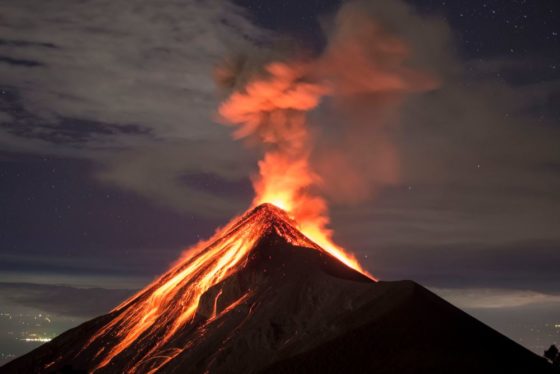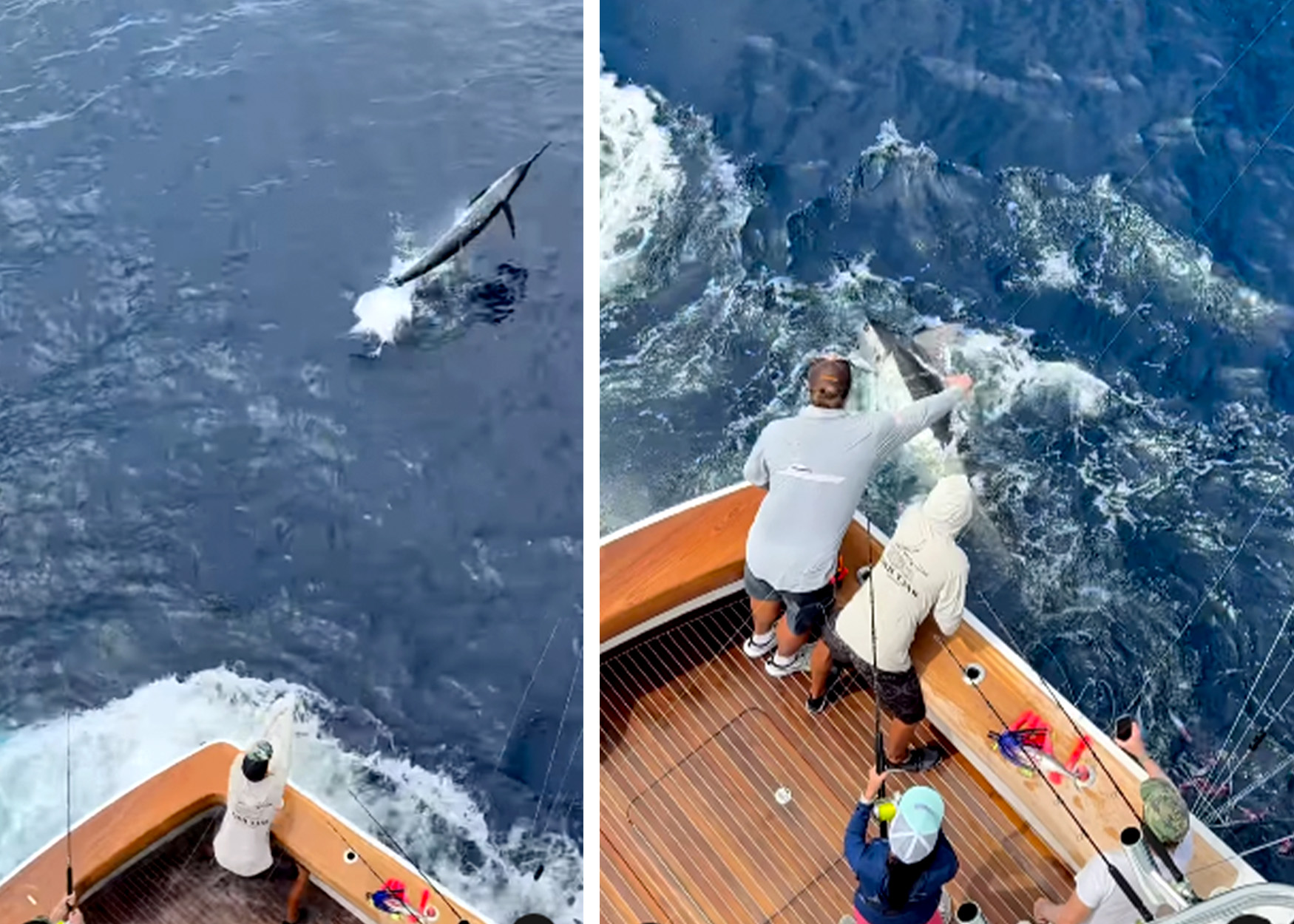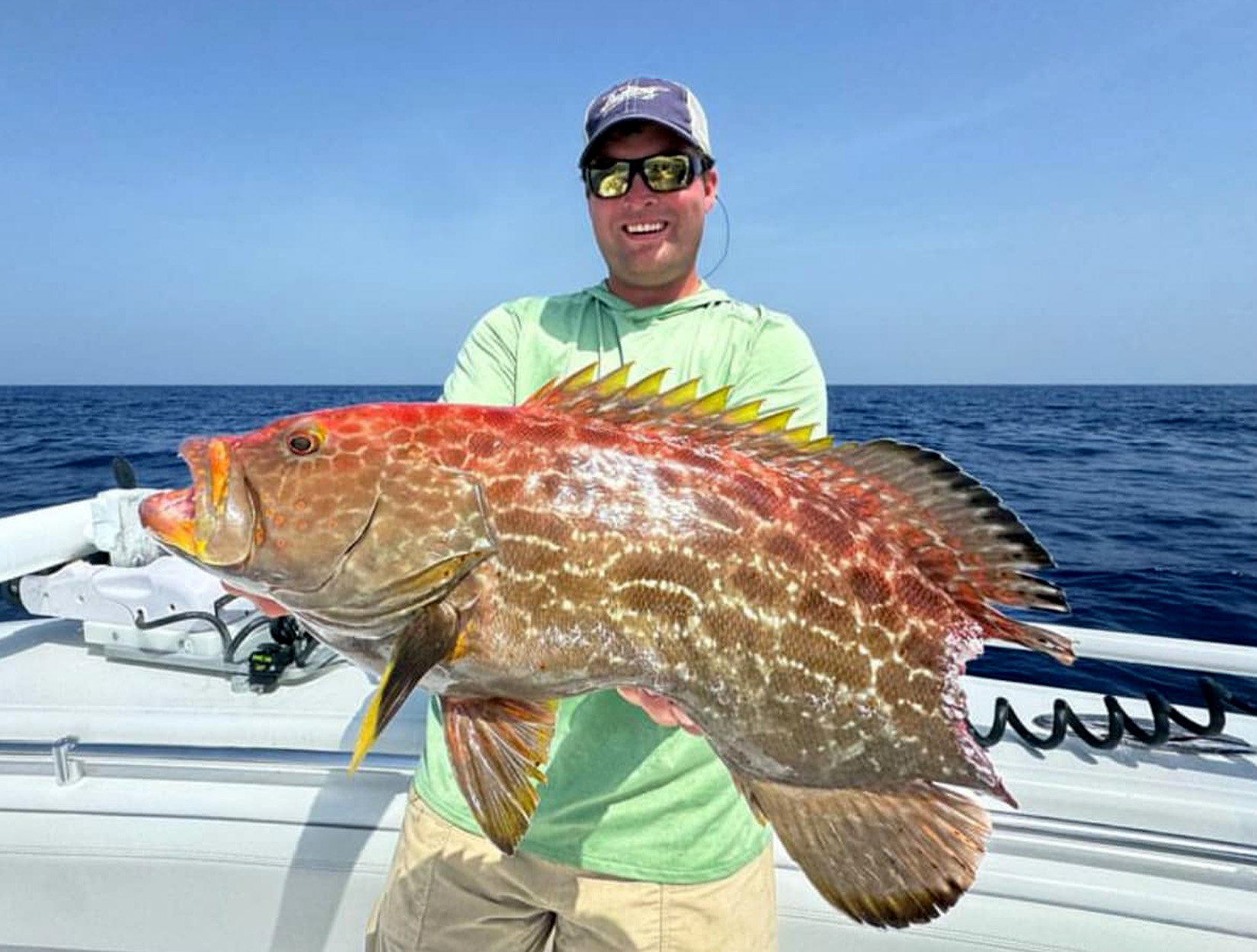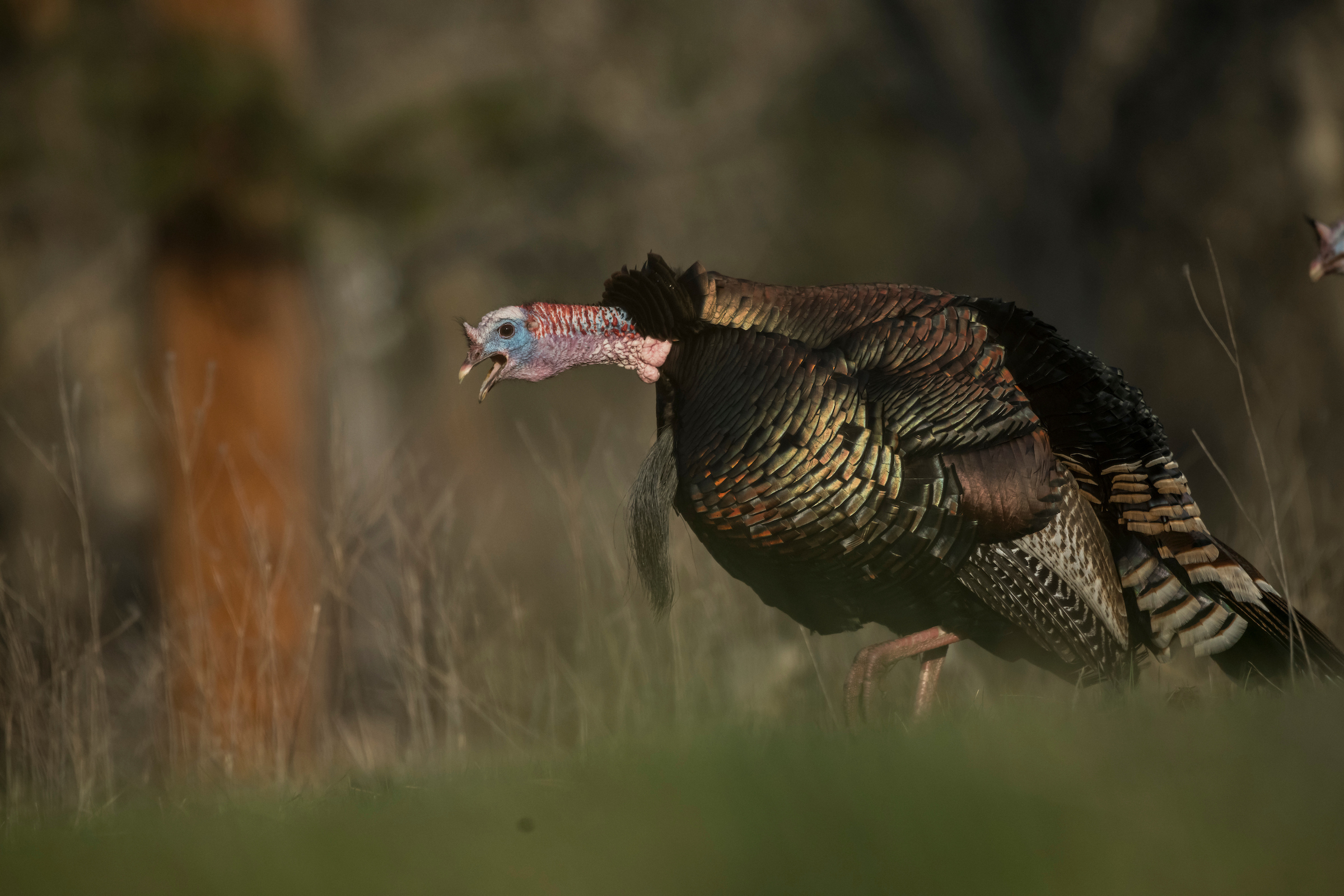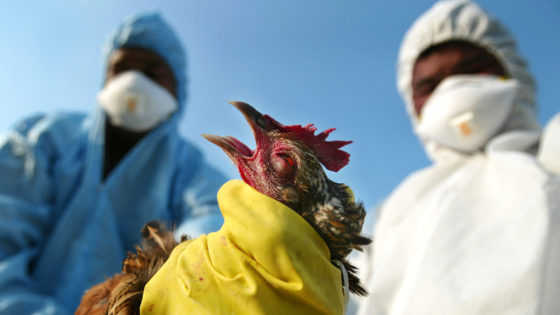It Should’ve Been the Best Mallard Hunt of Our Lives. Instead, We Almost Died

This story, “I’ll Never Hunt Ducks Again,” appeared in the March 1982 issue of Outdoor Life.
One of the greatest ordeals of my life began on a bleak, heavily overcast day, with a strong north wind and temperatures never rising above 22°. Dr. George Dahnke and I, both of Memphis, had decided to hunt ducks in the Floodway over in Arkansas. We’d heard reports that mallards were swarming on Section 16 of the Floodway, and the ducks were there, as we were to learn the hard way.
The Floodway was still timberland. About 100,000 acres of it had been dammed and canalized to prevent the St. Francis River from flooding the towns of Marked Tree and Parkin. The forest floor was flooded all year, hence, the lure for ducks.
George was an able physician and loyal friend, but he could never become a hunter. Though he was an enthusiast who tried hard, he began hunting too late in life and was too dedicated to the practice of medicine to give much thought to hunting. Further, he was not physically fit, being too soft through lack of exercise.
We drove to the Floodway with my father-in-law, Mr. Ambrose, who was past 70 years of age. He realized that he was not up to the effort involved in as much boating as George and I planned to do, so he arranged for a local guide to paddle his boat and keep him close to the clubhouse.
George and I pushed off before daylight and began motoring with the current down the main ditch, No. 62, which flowed south. By dawn we’d gone about half the eight miles we intended to go. Long before we reached our goal we had seen enough flushing mallards to be reasonably sure of plenty of action. Finally we left the main ditch, No. 62, shut down the little outboard engine, and prepared to paddle west through the woods. The ducks continued to work overhead, seemingly intent on reaching the area we had chosen.
We found an ideal situation, where thick bunch brush, covered by a dense network of vines, overlooked half an acre of open water. We pushed the boat under that natural blind and broke out ports in the tangle so that we could fire from the boat. I threw six decoys into the shallow water, and the setup appeared to be ideal. The only problem was my apprehension that our limits would come too easily and quickly for the keenest sport.
The ducks flew high overhead in a constant stream but paid no attention to the invitations sounded on my Turpin call. I did my utmost to make every quack, chatter or chuckle perfect, but all the birds were homing in on one small area. Obviously, some other hunters had a better setup than we did.
“George, those fellows are the lousiest callers I’ve ever heard,” I said. “But they’re getting the ducks. Those fellows doing that tooting are champs for luck!”
George blinked, then said, “J.D., I hadn’t thought about it, but we can hear those jokers calling, and they’re no good.”
“Yeah! And getting all the ducks!” I said, thoroughly disgusted. “Watch that bunch. They set their wings and are gliding straight in without circling.”
I was envious, as well as curious. In all my years of duck hunting I had never encountered a similar situation.
“Those guys sound like hogs feeding and hounds running,” George said. “And geese honking, and cows lowing!” I added.
Suddenly I realized why the masses of ducks were heedless. “George,” I said. “Those are ducks doing the calling! We have been sitting here like fools, criticizing the techniques of real ducks! What a dummy I am!”
“How do you know they’re real ducks?” George asked.
“How many shots have you heard?” I said. “If there were hunters over there, we would have heard them shooting.”
Say, you’re right!” George said.
“You stay here.” I suggested. “I’ll wade over and put that raft of ducks up. We can’t do any good as long as we have to compete with real ducks on the water.”
“Wait a minute, J.D.,” George said. “Mind if I go with you? I never saw a big bunch of ducks on the water.”
“Certainly, come on.”
Before George was out of sight, the ducks came back in throngs. At first I merely gave the short call and the feed call, and the birds fell through the trees and onto the water in dozens, then in hundreds.
Three hundred yards of wading brought us to the mallard equivalent of the famous Antoine’s restaurant in New Orleans. Under the clear three to six-inch-deep water was a golden bed of acorns. There was scant time to absorb the charm of the place because about five acres of the area before us erupted into flight. The roar of at least 20,000 beating wings is best described by George’s reaction. Plucking at my sleeve he shouted, “Let’s get out of here. That’s a tornado!”
“Don’t be silly!” I said.
“You can’t fool me,” he insisted. “I’m from Texas, remember? I know what tornados sound like!”
“That’s the roar of duck wings you hear!” I said. “Ducks are making THAT much of a roar?” he shouted. We were forced to yell in order to be heard over the noise of the wings.
As the ducks lifted out, the volume of sound diminished. “Where is your tornado now?” I asked.
“That was unbelievable!” he said. “Simply incredible! Nobody could have made me understand that ducks could make that much noise, even if millions got up!”
“George, this is the spot for our setup,” I said. “If we had the boat and decoys here we could have a blue-ribbon shoot.”
“Show me the direction of the boat and I’II go get it,” George said.
“OK,” I said, pointing his course. “Just keep that straight line and you can’t miss it.” He hitched his boots up in an instinctive gesture and ambled away. That decision to let George go after the boat was one of the most stupid of my mistakes. And it came nearest to being fatal.
Before George was out of sight, the ducks came back in throngs. At first I merely gave the short call and the feed call, and the birds fell through the trees and onto the water in dozens, then in hundreds. The ancient snag I leaned against provided ample cover because I remained motionless.
Soon the greedy mallards were feeding as though they could not gobble the acorns quickly enough. When my foot became cramped, I shifted slowly and slightly but the wary mallards were up and away.
When some birds came back over and started circling I called them in and killed a pair. My motives were to give George a bearing. He had been away far longer than necessary and I began to be concerned.
The ducks were eager to get down to the feed, so killing the limit was absurdly easy. I decided that to work the crow call would give George my location. I blew the Turpin crow call as loudly as one has ever been sounded, confident that George would hear it and know who was calling. George was not a crow shooter, but he knew, or I thought he knew, there were none in the Floodway at that time of year.
Soon I became concerned about George, blaming myself for letting him fetch the boat. He was certainly no woodsman and even less a swamp rat. Just as I was trying to decide on a course of action, I heard the slosh, slosh of his deliberate wading. That was fine, except that he was approaching from the opposite direction than I had expected. I could see him quite plainly, in my imagination, as he splashed along towing the boat. When he actually appeared without the boat, I could hardly credit my senses.
“Where did you leave the boat?” I asked.
“I never did find it,” he said.
I felt as though I had been dealt a heavy blow between the eyes. I was dazed and disoriented. I was so thoroughly confused that I had to wade around three tall snags to find the 15 slain mallards I had tossed at the base of the big stump where I was standing. I had no idea where the boat was. The sky looked like the underside of a dark gray tent, precluding any possibility of gaining the least help from the sun. There were no traffic noises. No sound of whistles, bells or machinery was nearer than eight miles from us.
We found thousands upon thousands of wild mallards, but no trace of our six wooden decoys or any other clue to our boat’s location. As far as we were concerned, the boat had disappeared forever.
We were as hopelessly lost as though stranded in the Sahara or in forests of the Belgian Congo.
I had my compass, but it was next to useless because no matter which direction we chose to follow, we could go only a short distance before we reached a deep ditch, canal or sink. All were filled with water, and we could swim across none. The only value of knowing the precise direction was to help us follow the only pathway that might wind around to provide the one route to the confluence of Ditch No. 62 and a string of borrow pits. It was there thal we just might luck onto someone in a boat, although the chance of any duck hunter being there so late in such weather was virtually nonexistent. I was scared — badly scared.
Without a boat we were doomed to remain in the flooded timber and die. We would become to weak to sit on a fallen tree trunk or to stand in the water, trying to balance ourselves on the muddy, uneven ground under the muddy, frigid water. Then we would freeze or drown.
Our only hope was to find our boat. We found thousands upon thousands of wild mallards, but no trace of our six wooden decoys or any other clue to our boat’s location. As far as we were concerned, the boat had disappeared forever.
This will give an indication of the futility of our search: After the ordeal I offered a trapper $10 to find the hidden boat. I explained as nearly as possible where the boat was, and he accepted the challenge. It was only after three days of careful, expert searching that he found it. He told us he’d passed within 10 yards of the craft three times — carefully following my directions — before he finally pushed the brush blind aside and found the boat.
“I never would have believed anybody could hide something as big as a boat, especially with wooden decoys floating on the water close to it, then tell me exactly where it was and I would have to look for it three days to find it,” he said.
After abandoning our search for the boat, and our last hope of escaping from the flooded woods, I told George we would have to wade to where No. 62 ditch flowed past the borrow pits.
Should we by chance reach that point, we had a very slight chance to get a ride with some duck hunters who were headed for their cars.
We knew that if we reached the confluence of the No. 62 ditch and the borrow pits we’d need a boat to cross a borrow pit at least 15 feet deep.
To try to swim to safety was out of the question, and if we made the first swim we would still be eight miles from the clubhouse with more than a dozen breaks in the levee, each a deep, swiftly flowing, icy flood. I explained all this to George.
As we waded. George decided that my compass was out of kilter and that we were going in the wrong direction. Finally, after having shown him the compass half a dozen times. I asked whether he still believed the instrument to be in error, and he did.
“All right,” I told him. “You go the right way and I will follow the compass on our present course.”
He chose for us to stay together and, without debate, followed the compass readings from then on. George was not accustomed to conditions such as we had encountered and began to weaken. As he did, he tripped and fell. I jerked him back to his feet but he was soaked. After several falls, I became concerned about his ability to wade farther. It was then, just before dark, that George stepped into a deep stump hole and went entirely under. There was nothing to be done except to step down into the water and drag him out. By that time. I, too, was saturated and chilled to the bone, dead tired, hungry and scared witless.
The thought of being trapped in the cold with no place to rest and nothing to eat or drink. was terrifying, especially because nobody even knew just where we were. The frigid wind sought out each opening in our winter gear, probably seeping in through buttonholes. The cold water was a danger on all sides of us — and we were helpless. I could tell George was hopeless — a bad attitude for one who would survive.
Cold became an obsession. I was in a delirium of cold. I could think of nothing but cold and could feel nothing but cold. As night fell, the thought of us alone, helpless, in the water, in the cold, almost overcame me. I knew the feeling of coming face-to-face with death in its grimmest, most terrifying aspect.
Sudden death by such violence as an explosion, even death by tire, painful as it would be. seemed lesser punishment than this protracted end after countless hours of excruciating agony.
Terror overcame me time after time. But to give way to fear or to cold would be to die. and I could not afford to die.
During my many misadventures in the outdoors, I have been petrified with fright and agonized by injuries. One time I spent a night under an ice cake in the middle of the Mississippi River. I thought that experience was the worst mixture of pain and panic I had ever endured, or could ever survive. But now I knew how mistaken such an assessment could be before one has been ground by the mills of chance into finer fiber.
It was fortunate for us that a large tree had been felled and the butt had not fallen from the stump. I helped George up on to the horizontal tree trunk and, with my knife, gouged a small depression in the dead wood. Into this saucer I placed some duck down and small wood chips.
I could feel nothing but pain with my badly frozen hands. I opened some shells and poured the powder over the makeshift kindling. Then, by wading from tree to tree and breaking off dead branches hanging above the water, I finally got enough fuel for a tiny fire. With freezing hands I fumbled my waterproof matchbox from a frozen pocket. The contraption contained 25 dry kitchen matches. The first 17 were extinguished instantly by the wind, despite my best efforts to prevent it. The 18th match kindled the flame. The only way I could hold a wooden match was by clasping it with the tongue in my duck call, a poor tool for that, but far better then my numb hands.
“George, I am going to continue to bring dry sticks,” I explained. “But do not build a big blaze. The small fire will enable us to get close, almost over it, and absorb some warmth. A big fire will only drive us back and most of the heat will go to waste over our heads.”
“All right, J. D.,” he chattered, placing every piece of wood on the leaping flames as soon as he could get his eager hands on it. And so it went; I brought a pile of sticks during the next few hours and George burned all of them, to the smallest twig, as soon as he could reach them.
George had a death grip on his good grade, double-barrel gun, but I was concerned that it might fall from his grasp. l cut a stout little twig about four inches out from a tree trunk and hung my gun, also a double, by the trigger guard, using the projecting bit of the lopped-off branch. I suggested that George let me do the same for his gun, before he dropped it.
“It doesn’t matter,” he said, “I’II never live to use it again anyway.”
I persuaded him that his heirs might be able to sell such a handsome weapon, proceeded to cut a small rack for his gun, took it from his nerveless fingers, and hung it from the tree.
Ducks were in the water on all sides of us, and they were noisy. Each time a susie quacked or a drake wheezed, George would mutter and mumble. Finally he burst out: “Damn the ducks! Damn all ducks!”
“Why, George, J thought that you liked ducks and duck talk,” I teased. That night was the only time I ever heard him say an oath. “I hate the things!” he said. “If l ever get out of here, alive, I will never hunt ducks again!”
I’d never heard him say anything with more vehemence.
“J.D. !” George said. “We will have pneumonia as a result of this exposure. We’ll be sick as the devil, too. The crisis will occur on the fifth day, (that was long before penicillin and antibiotics), then after another forty-eight hours we will be dead.” His tone was so lugubrious that I laughed.
“You may be getting pneumonia, but I am not,” I assured him.
“As a physician, I have seen it happen too often,” he said, not to be dissuaded.
“Nuts to pneumonia!” I said. “I’m not interested in anything except to get off this log.”
“We will probably survive tonight and perhaps tomorrow,” George said. “Perhaps by tomorrow night we will become so weak that we will fall in the water and die of hypothermia, called exposure.” A bright prospect, I thought, as George continued, “Well, I am ready to go at any time. My life insurance is adequate and is paid up. I have nobody but my wife and she will be well provided for … He had it all worked out, and was speaking sincerely when he said he was resigned to perish.
“Well, my wife and two tiny tots will still need some care,” I responded, “and I, my boy, intend to stick around a while to provide it!” I had never spoken more earnestly.
I thought that George had dozed as he slumped on the log, since he had not put a stick on the fire for almost a full minute, but an unusually raucous outburst of quacks from a startled mallard hen caused him to shout, “Damn those ducks! To hell with all ducks! If I ever get out of here alive I will never hunt ducks again!”
Right then I heard something in the distance.
“George! Do you hear what I do?” I demanded.
“Sounds like someone running an outboard engine,” he stammered between chattering teeth.
“Exactly.” I was excited as I loaded his gun and handed it to him. “He is coming down sixty-two ditch. When he gets to the end of the ditch, he’ II shut his engine down. Let’s wait about thirty seconds after it stops, to let him get the ringing out of his ears. Then let’s shoot our guns and yell like hell!”
The engine sputtered and was silent. The waiting seemed eternal as I counted 30 seconds off. It was then 9 o’clock, our rescuer told me later. Then we shot our guns and yelled like demons! Ducks spattered off the water from quite near.
A voice hailed. We replied. I shouted that we were stranded. After a long interval we could hear a push pule thumping and scraping, then a headlamp came into view, moving slowly along the deep water. The light stopped quite a long way from us.
“Air you’uns them fellers fum Me’phis what we’uns is come after?” came the question.
“We are the ones,” I replied.
“Well, push yore boat outen th’woods so’s we’uns kin holp you’uns outen th’ cold.”
“We lost our boat,” I blurted.
“Whut happent? Run hit onter uh cypus knee?” our would-be rescuer queried.
“No,” I yelped. “We just lost our boat!”
The light moved back another dozen yards.
“Lost hit? How cud no boat git lost?” he demanded suspiciously. “Hain ‘t hardly no way tuh jes lose uh boat!”
“Look, we lost the boat and are freezing. Come and get us, please!” My voice echoed my desperation and the boatman decided that we were harmless, after all.
He pushed his boat up to our log and I helped George aboard. The eight-mile run into the teeth of the wind was the worst three-hour ordeal I have ever suffered. Our wet clothing was frozen solid before we had gone halfway. When we docked at the clubhouse our frozen clothing was rigid and we were immobilized, encased in ice. Two men were required to lift each of us to the dock.
Read Next: Where Are All the Ducks?
Mr. Ambrose, who had sent our rescuer, was ready with his brandy bottle. We followed the brandy with cup after cup of scalding coffee. As we sat huddled over a substantial meal, our first of the day, we were so near the big stove that steam from our drying clothing obscured our vision. George fanned the cloud of steam from in front of his face, and, peering anxiously, asked, “J.D. can you make it over here again Wednesday?”
It was then one o’clock Monday morning. He would never hunt ducks again — until Wednesday morning, that is.
Read the full article here


